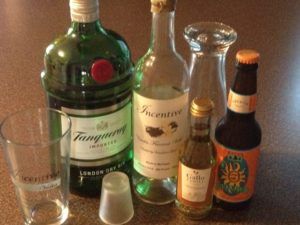BYCU

BYCU
I'm still catching up on good TDE leads I received last year. I should've ran this one a long time ago: Renewed interest in sour beer.
It's somewhat lengthy, but the gist of it is: Historically, all beer was sour, at least to some degree (a "liquid Sour Patch Kid"). This was due to unpredictable bacteria in the fermentation process. Refrigeration removed them, making beer more uniform and less "funky." People are finding that they rather like the funky:
In a development that would make Pasteur, the father of biogenesis (as well as his method for halting it, pasteurization) roll in his grave, brewers, especially in the United States, have embraced the time-honored Belgian art of deliberately infecting beer with the same “wild” bugs that generations of their predecessors so painstakingly eradicated. The result: pleasingly sour, food-friendly beer, mysteriously complex and engaging.
If you're looking for some of this funky sour beer:
[A] motley crew of American rebels is pursuing the art of sour beer. There's Ron Jeffries, formerly known as “Captain Spooky,” of Michigan's Jolly Pumpkin, credited with brewing some of the first good, all-wood-fermented American sours in the early two-thousands. California's Lost Abbey, of San Marcos, and Russian River, of Santa Rosa, have ascended to cult status. Chad Yakobson, founder of the surging Crooked Stave brand in Denver, began his career with a masters on Brettanomyces. Even MillerCoors, through its AC Golden unit, is overseeing a wood-aging program under the watchful eye of an ambitious young brewer, Troy Casey. And in the Oregon wilderness, outside Bend, the brewer Paul Arney, formerly the R. & D. chief of the fifth-largest brewery in the country, Deschutes, has gone off the grid, too, fermenting some of his sour Ale Apothecary line in hollowed-out spruce trees resembling dugout canoes.
